- Item added to cart
🎁 Pack de cursos → ¡50% DE DESCUENTO en el 2º!
Coach de Menopausia - Curso Certificado
1 X $62.00 $31.62
= $31.62
Coach en Neurociencia - Curso Certificado
1 X $247.00 El precio original era: $247.00.$62.00El precio actual es: $62.00.
= $62.00
Have a Promo Code?
Total
$93.62
Productos que podrían interesarte
-
 Introducción a la Terapia Ecuestre - Curso Certificado$62.00 +Add
Introducción a la Terapia Ecuestre - Curso Certificado$62.00 +Add -
 Practicante de naturopatía para animales - Curso Certificado$62.00 +Add
Practicante de naturopatía para animales - Curso Certificado$62.00 +Add -
 Coach de sombra - Curso Certificado$62.00 +Add
Coach de sombra - Curso Certificado$62.00 +Add -
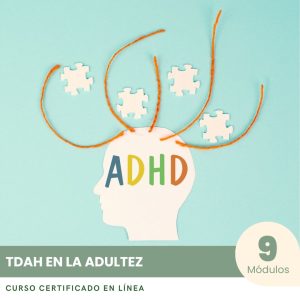 TDAH en la Adultez - Curso Certificado$62.00 +Add
TDAH en la Adultez - Curso Certificado$62.00 +Add -
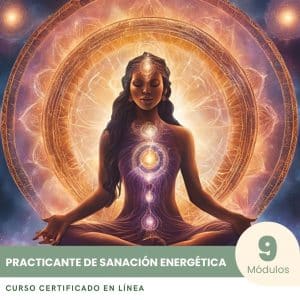 Practicante de Sanación Energética - Curso Certificado$62.00 +Add
Practicante de Sanación Energética - Curso Certificado$62.00 +Add -
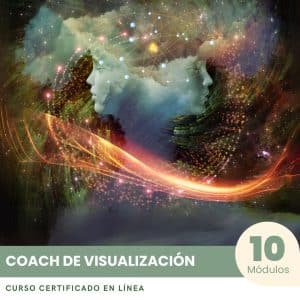 Entrenador de visualización - Curso Certificado$62.00 +Add
Entrenador de visualización - Curso Certificado$62.00 +Add -
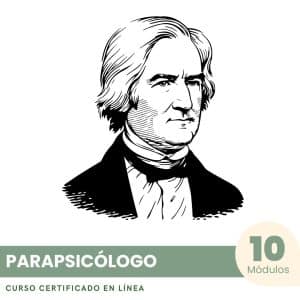 Parapsicólogo - Curso Certificado$62.00 +Add
Parapsicólogo - Curso Certificado$62.00 +Add -
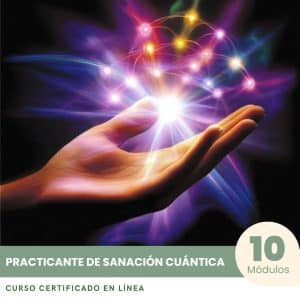 Practicante de Sanación Cuántica - Curso Certificado$62.00 +Add
Practicante de Sanación Cuántica - Curso Certificado$62.00 +Add -
 Coach de Duelo - Curso Certificado$62.00 +Add
Coach de Duelo - Curso Certificado$62.00 +Add -
 Terapeuta de la Risa - Curso Certificado$62.00 +Add
Terapeuta de la Risa - Curso Certificado$62.00 +Add -
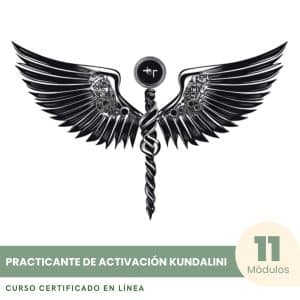 Practicante de Activación Kundalini - Curso Certificado$62.00 +Add
Practicante de Activación Kundalini - Curso Certificado$62.00 +Add -
 Coach de Duelo por la Pérdida de Mascotas - Curso Certificado$62.00 +Add
Coach de Duelo por la Pérdida de Mascotas - Curso Certificado$62.00 +Add -
 Practicante de Sanación Femenina Divina - Curso Certificado$62.00 +Add
Practicante de Sanación Femenina Divina - Curso Certificado$62.00 +Add -
 Experto en Wicca - Curso Certificado$62.00 +Add
Experto en Wicca - Curso Certificado$62.00 +Add -
 Entrenador de Vida y de Misión de Vida - Curso Certificado$62.00 +Add
Entrenador de Vida y de Misión de Vida - Curso Certificado$62.00 +Add -
 Coach de Sueño - Curso Certificado$62.00 +Add
Coach de Sueño - Curso Certificado$62.00 +Add -
 Practicante de Recuperación del Alma - Curso Certificado$62.00 +Add
Practicante de Recuperación del Alma - Curso Certificado$62.00 +Add -
 Entrenador de Vida en Arte - Curso Certificado$62.00 +Add
Entrenador de Vida en Arte - Curso Certificado$62.00 +Add -
 Anales Akáshicos - Curso Certificado$62.00 +Add
Anales Akáshicos - Curso Certificado$62.00 +Add -
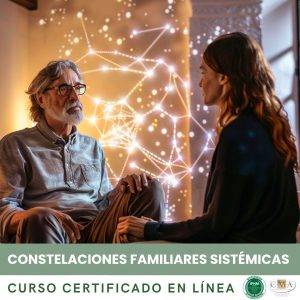 Practicante de Constelaciones Familiares Sistémicas - Curso Certificado$62.00 +Add
Practicante de Constelaciones Familiares Sistémicas - Curso Certificado$62.00 +Add -
 Entrenador de Sanación Espiritual - Curso Certificado$62.00 +Add
Entrenador de Sanación Espiritual - Curso Certificado$62.00 +Add -
 Coach de Salud Holística para Mujeres - Curso Certificado$62.00 +Add
Coach de Salud Holística para Mujeres - Curso Certificado$62.00 +Add -
 Entrenador de Neurodiversidad - Curso Certificado$62.00 +Add
Entrenador de Neurodiversidad - Curso Certificado$62.00 +Add -
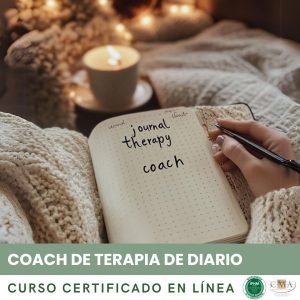 Coach de Terapia de Diario- Curso Certificado$62.00 +Add
Coach de Terapia de Diario- Curso Certificado$62.00 +Add -
 Activador del Cuerpo de Luz Merkaba - Curso Certificado$62.00 +Add
Activador del Cuerpo de Luz Merkaba - Curso Certificado$62.00 +Add -
 Entrenador para Persona Altamente Sensible - Curso Certificado$62.00 +Add
Entrenador para Persona Altamente Sensible - Curso Certificado$62.00 +Add -
 Doula de la Muerte - Curso Certificado$62.00 +Add
Doula de la Muerte - Curso Certificado$62.00 +Add -
 Practicante de curación angelical - Curso Certificado$62.00 +Add
Practicante de curación angelical - Curso Certificado$62.00 +Add -
 Coach en Línea de lo Sagrado Femenino - Curso Certificado$62.00 +Add
Coach en Línea de lo Sagrado Femenino - Curso Certificado$62.00 +Add -
 Coach para Adolescentes - Curso Certificado$62.00 +Add
Coach para Adolescentes - Curso Certificado$62.00 +Add -
 Coach de Habilidades Blandas - Curso Certificado$62.00 +Add
Coach de Habilidades Blandas - Curso Certificado$62.00 +Add -
 Introducción a la Terapia Canina - Curso Certificado$62.00 +Add
Introducción a la Terapia Canina - Curso Certificado$62.00 +Add -
 Practicante de Sanación Divina Femenina - Curso Certificado$62.00 +Add
Practicante de Sanación Divina Femenina - Curso Certificado$62.00 +Add -
 Practicante de Terapia Narrativa - Curso Certificado$62.00 +Add
Practicante de Terapia Narrativa - Curso Certificado$62.00 +Add -
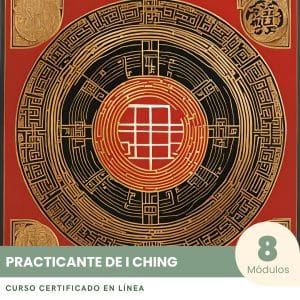 Practicante de I Ching - Curso Certificado$62.00 +Add
Practicante de I Ching - Curso Certificado$62.00 +Add -
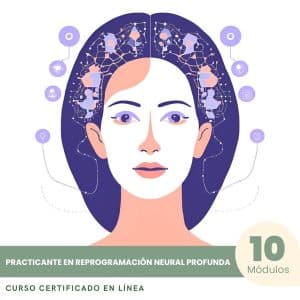 Practicante en Reprogramación Neural Profunda - Curso Certificado$62.00 +Add
Practicante en Reprogramación Neural Profunda - Curso Certificado$62.00 +Add -
 Entrenador Transformacional - Curso Certificado$62.00 +Add
Entrenador Transformacional - Curso Certificado$62.00 +Add -
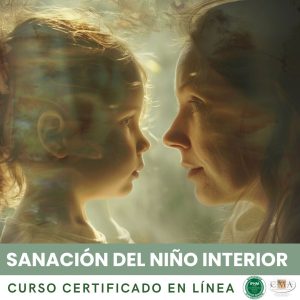 Practicante de Sanación del Niño Interior - Curso Certificado$62.00 +Add
Practicante de Sanación del Niño Interior - Curso Certificado$62.00 +Add -
 Practicante de Terapia Polivagal - Curso Certificado$62.00 +Add
Practicante de Terapia Polivagal - Curso Certificado$62.00 +Add -
 Practicante de Curación de Traumas - Curso Certificado$62.00 +Add
Practicante de Curación de Traumas - Curso Certificado$62.00 +Add -
 Practicante de Sanación Energética Chamánica - Curso Certificado$62.00 +Add
Practicante de Sanación Energética Chamánica - Curso Certificado$62.00 +Add -
 Practicante de Punto de Liberación Profunda - Curso Certificado$62.00 +Add
Practicante de Punto de Liberación Profunda - Curso Certificado$62.00 +Add -
 Practicante de Hoodoo - Curso Certificado$62.00 +Add
Practicante de Hoodoo - Curso Certificado$62.00 +Add -
 Coach de Salud Holística para Mujeres - Curso Certificado$62.00 +Add
Coach de Salud Holística para Mujeres - Curso Certificado$62.00 +Add -
 Practicante de Reiki para Animales - Curso Certificado$62.00 +Add
Practicante de Reiki para Animales - Curso Certificado$62.00 +Add -
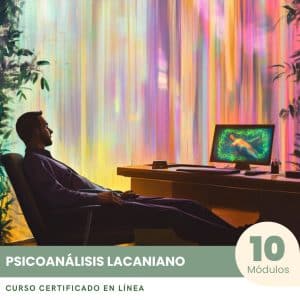 Psicoanálisis Lacaniano - Curso Certificado$62.00 +Add
Psicoanálisis Lacaniano - Curso Certificado$62.00 +Add -
 Practicante de Energía Informado por el Trauma - Curso Certificado$62.00 +Add
Practicante de Energía Informado por el Trauma - Curso Certificado$62.00 +Add -
 Coach LGBTQ+ - Curso Certificado$62.00 +Add
Coach LGBTQ+ - Curso Certificado$62.00 +Add -
 Programa de Excelencia en Chamanismo del Antiguo Egipto$62.00 +Add
Programa de Excelencia en Chamanismo del Antiguo Egipto$62.00 +Add -
 Coach de Transición Postparto - Curso Certificado$62.00 +Add
Coach de Transición Postparto - Curso Certificado$62.00 +Add -
 Guía de Unión Sagrada de Llamas Gemelas - Curso Certificado$62.00 +Add
Guía de Unión Sagrada de Llamas Gemelas - Curso Certificado$62.00 +Add -
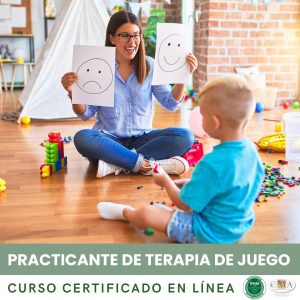 Practicante de Terapia de Juego - Curso Certificado$62.00 +Add
Practicante de Terapia de Juego - Curso Certificado$62.00 +Add -
 Coach de Crianza - Curso Certificado$62.00 +Add
Coach de Crianza - Curso Certificado$62.00 +Add -
 Coach de Productividad - Curso Certificado$62.00 +Add
Coach de Productividad - Curso Certificado$62.00 +Add -
 Entrenador de relaciones - Curso Certificado$62.00 +Add
Entrenador de relaciones - Curso Certificado$62.00 +Add -
 Lector de Aura Profesional - Curso Certificado$62.00 +Add
Lector de Aura Profesional - Curso Certificado$62.00 +Add -
 Coach de Parejas - Curso Certificado$62.00 +Add
Coach de Parejas - Curso Certificado$62.00 +Add -
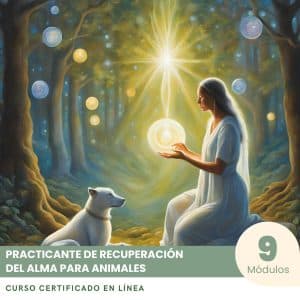 Practicante de Recuperación del Alma para Animales - Curso Certificado$62.00 +Add
Practicante de Recuperación del Alma para Animales - Curso Certificado$62.00 +Add -
 Coach Cristiano - Curso Certificado$62.00 +Add
Coach Cristiano - Curso Certificado$62.00 +Add -
 Entrenador de mentalidad - Curso Certificado$62.00 +Add
Entrenador de mentalidad - Curso Certificado$62.00 +Add -
 Facilitador de Sueños Lúcidos - Curso Certificado$62.00 +Add
Facilitador de Sueños Lúcidos - Curso Certificado$62.00 +Add -
 Practicante de Horticultura para el Bienestar Coach - Curso Certificado$62.00 +Add
Practicante de Horticultura para el Bienestar Coach - Curso Certificado$62.00 +Add -
 Experto en Psicología de la Adicción - Curso Certificado$62.00 +Add
Experto en Psicología de la Adicción - Curso Certificado$62.00 +Add -
 Entrenador de Salud Hormonal - Curso Certificado$62.00 +Add
Entrenador de Salud Hormonal - Curso Certificado$62.00 +Add -
 Coach de Salud Integrativa - Curso Certificado$62.00 +Add
Coach de Salud Integrativa - Curso Certificado$62.00 +Add -
 Programa de Excelencia en Psicología Criminal - Curso Certificado$62.00 +Add
Programa de Excelencia en Psicología Criminal - Curso Certificado$62.00 +Add -
 Introducción a la Psicología Infantil - Curso Certificado$62.00 +Add
Introducción a la Psicología Infantil - Curso Certificado$62.00 +Add -
 Entrenador Somático - Curso Certificado$62.00 +Add
Entrenador Somático - Curso Certificado$62.00 +Add -
 Practicante de Sanación Ancestral - Curso Certificado$62.00 +Add
Practicante de Sanación Ancestral - Curso Certificado$62.00 +Add -
 Practicante de la llama violeta - Curso Certificado$62.00 +Add
Practicante de la llama violeta - Curso Certificado$62.00 +Add -
 Introducción a la Terapia de Gato - Curso Certificado$62.00 +Add
Introducción a la Terapia de Gato - Curso Certificado$62.00 +Add -
 Practicante de Sanación Energética Equina - Curso Certificado$62.00 +Add
Practicante de Sanación Energética Equina - Curso Certificado$62.00 +Add -
 Coach Ikigai - Curso Certificado$62.00 +Add
Coach Ikigai - Curso Certificado$62.00 +Add -
 Practicante de Reiki Kármico - Curso Certificado$62.00 +Add
Practicante de Reiki Kármico - Curso Certificado$62.00 +Add -
 Comunicador Animal - Curso Certificado$62.00 +Add
Comunicador Animal - Curso Certificado$62.00 +Add -
 Experto en Neuropsicología - Curso Certificado$62.00 +Add
Experto en Neuropsicología - Curso Certificado$62.00 +Add -
 Coach de Vitalidad Qigong - Curso Certificado$62.00 +Add
Coach de Vitalidad Qigong - Curso Certificado$62.00 +Add -
 Practicante de Sanación Energética Multidimensional - Curso Certificado$62.00 +Add
Practicante de Sanación Energética Multidimensional - Curso Certificado$62.00 +Add -
 Practicante de la Respiración - Curso Certificado$62.00 +Add
Practicante de la Respiración - Curso Certificado$62.00 +Add -
 Coach TDAH - Curso Certificado$62.00 +Add
Coach TDAH - Curso Certificado$62.00 +Add -
 Coach Junguiano - Curso Certificado$62.00 +Add
Coach Junguiano - Curso Certificado$62.00 +Add -
 Practicante de Drama para el Bienestar - Curso Certificado$62.00 +Add
Practicante de Drama para el Bienestar - Curso Certificado$62.00 +Add -
 Coach en Gestión del Estrés - Curso Certificado$62.00 +Add
Coach en Gestión del Estrés - Curso Certificado$62.00 +Add -
 Practicante de Reprogramación de la Conciencia - Curso Certificado$62.00 +Add
Practicante de Reprogramación de la Conciencia - Curso Certificado$62.00 +Add -
 Coach Menstrual - Curso Certificado$62.00 +Add
Coach Menstrual - Curso Certificado$62.00 +Add
Apply Coupon
Available Coupons
secreto20
Get 20% off